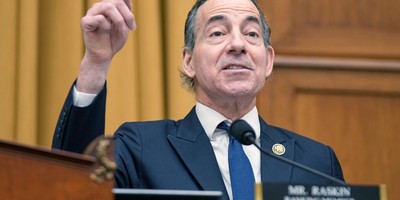The Shanghai Cooperation Organization (SCO): Leaders from the six SCO members plus invitees are meeting in Beijing this week to discuss mutual security interests, counter-terrorism, economic cooperation and Afghanistan, Those in attendance include Russian President Putin; Chinese President Hu Jintao who is the host; and leaders of Kazakhstan, Kyrgyzstan, Tajikistan and Uzbekistan. Mongolia, India, Pakistan and Iran also have sent delegations as observers. President Karzai leads a guest delegation from Afghanistan.
News services reported Chinese President Hu as saying China should be involved in Afghanistan's peaceful reconstruction. "We will intensify communication and coordination on key global and regional issues to safeguard common security and the development interests of member states," Hu said.
Comment: Geography remains one of the most powerful and the most enduring background factors in international relations. Continental systems abide. The SCO is based on a geographic community of interest.
As a pan-Asian system its members will profit or suffer from whatever the Western intervention in Afghanistan leaves behind. For example, the Chinese already have a head start in exploiting Afghanistan's mineral wealth. The members are discussing security in central Asia after the Western troops depart.
SCO is not a military alliance in any sense. However, regional stability and security cooperation are two of its core precepts. Member states periodically participate in counter-terrorism exercises. In the NightWatch hypothesis, the SCO fits into the 70-year process of restoring normality in Asia in which Asian states take responsibility for Asian security.
Philippines: American troops, warships and aircraft can once again use their former naval and air facilities in Subic, Zambales and in Clark Field in Pampanga as long as they have prior clearance from the Philippine government, a senior defense official said.
"They can come here provided they have prior coordination from the government," Defense Undersecretary for defense affairs Honorio Azcueta told reporters after his meeting with General Martin Dempsey, Chairman of the US Joint Chiefs of Staff, on Monday.
Recommended
Comment: The Philippine leaders are wrapping themselves in the American flag in their dispute with China over islands and seabed resources in the South China Sea. The problem is geography and China's anti-secession law. Geography will not change and the Chinese are proscribed by law from abandoning their claims to it, despite the proximity of powerful US naval forces. There will be more standoffs.
India-US: During a two-day stop in New Delhi, US Defense Secretary Panetta urged Indian officials to take a 'more active role' in Afghanistan and tried to allay their concerns about a new US strategy for Asia that aims in part to counterbalance China's increasing influence and military power. In a speech Wednesday at the Institute for Defense Studies and Analyses, Mr. Panetta said that the military relationship between the United States and India must deepen.
Comment: India rejected the Secretary's overture and held no joint press conference after high level talks. What the Secretary said must happen will not happen, except on a case by case basis and primarily for air force and some high tech weapons systems.
As for Indian involvement in Afghanistan, that already is taking place on a scale not reflected in the Secretary's remarks. India was and remains the ally and supplier of Afghanistan's Northern Alliance of Uzbeks and Tajiks against the Pashtun Taliban and the Indian Border Roads Organization has been building roads in southwestern Afghanistan to Iran for years.
India will not be a US ally or serve US interests. US and Indian strategic interests are not fundamentally congruent for many reasons rooted in Indian history. This is not new or news. Indians would be even less likely to cooperate with the US at a time when the US military profile in South Asia is diminishing.
Pakistan: Pakistan is impeding US attempts to curb the flow of bomb making materials from Pakistan to Taliban insurgents in Afghanistan, a report by the Government Accountability Office obtained by USA Today shows. The report, which has not been officially released, focused on State Department efforts to measure efforts aimed at fighting improvised explosive devices in Pakistan.
Comment: IEDs are the favorite weapon of the Taliban, but Afghanistan makes no batteries, no garage door openers, no plastic, no wire and no ammonium nitrate fertilizer. Almost all are imported from Pakistan and the flow has increased steadily for at least six years. The ammonium nitrate is manufactured in only two plants in Pakistan.
Egypt: Egypt's Supreme Constitutional Court is to sit just two days before a presidential election runoff to review a law that had threatened to bar one of the two candidates, a spokesman said on Wednesday. 'The court has scheduled 14 June as the date for its hearing on the appeal lodged by the electoral commission concerning the law,' court spokesman Maher Sami told state MENA news agency.
Comment: One might have thought the Court would have acted on this law before the first round of elections because it might have disqualified the pro-military candidate former prime minister Shafiq. This is lose-lose for the Court because it cannot make a ruling that will not generate more protest demonstrations. This time conditions are conducive to violent civil disorders. Protests continue in Tahrir Square in Cairo.
End of NightWatch
NightWatch is brought to readers of Townhall Finance by Kforce Government Solutions, Inc. (KGS), a leader in government problem-solving, Data Confidence® and intelligence. Views and opinions expressed in NightWatch are solely those of the author, and do not necessarily represent those of KGS, its management, or affiliates.A Member of AFCEA International

























Join the conversation as a VIP Member